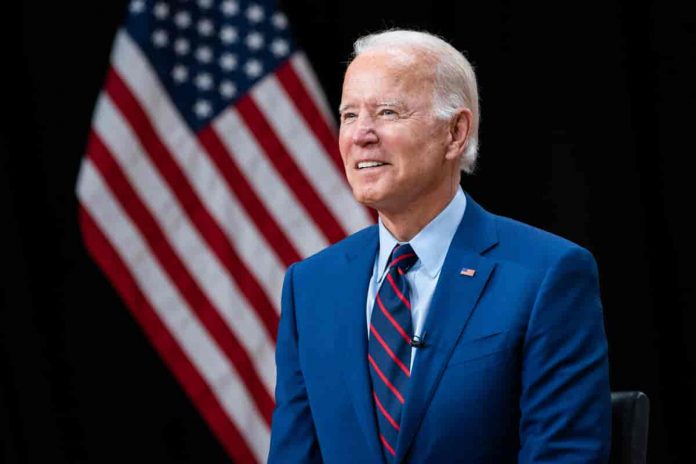President Joe Biden proposes raising the corporate income tax rate, capital gains tax rate, and personal income tax rates, among other tax increases. These hikes would make the United States an international outlier, with some of the highest tax rates in the developed world.
In his fiscal year 2025 budget request to Congress, President Biden proposed about a dozen new or higher taxes that would raise close to $5 trillion in additional revenue over a decade (according to their optimistic forecasting). I detailed the specifics in an earlier piece, “What Does Biden Plan for the Tax Code?”
The Biden tax hikes would primarily fall on capital income, leading to less domestic investment, fewer jobs, and slower economic growth. According to estimates from the Tax Foundation, the budget proposal would reduce long‐run GDP by 2.2 percent, hurt wages, and eliminate 788,000 jobs. This is likely a significant understatement of the negative economic effects. The analysis notes that the budget’s proposals will make America an international outlier on individual and corporate taxes.
The following four charts use data from the Organisation for Economic Co‐operation and Development (OECD) to show tax rates on corporate income, dividends, total integrated taxes on corporate income paid out as dividends, and personal income. The data include national and subnational taxes.
The United States currently exceeds the OECD average in all four tax measures. The charts also show that under Biden’s budget proposals, American tax rates move from just above average to an outlier nation, with some of the highest tax rates in the OECD.
Figure 1 shows that Biden’s proposal to increase the federal corporate income tax rate from 21 percent to 28 percent would increase the United States’ combined state and federal corporate tax rate to 32 percent. The US would have a corporate income tax rate nearly 50 percent higher than the OECD average and second highest behind Colombia’s 35 percent. Not included in the OECD data is China, which has a 25 percent corporate tax rate.
Figure 2 shows net personal dividend tax rates. Under Biden’s proposal, capital gains and dividends would be taxed at a top income tax rate of 39.6 percent, plus a higher net investment income tax rate of 5 percent. After these tax increases, the United States would have the second‐highest dividend taxes in the OECD.
Figure 3 combines the taxes in Figure 1 and Figure 2. It shows the total integrated tax rate on corporate income that is first taxed by the corporate income tax and then taxed a second time when it is distributed as a dividend to shareholders. Under Biden’s corporate and investment tax increases, distributed profits in the United States would face a 66 percent integrated tax rate, seven percentage points higher than any other country in the OECD. Tax Foundation data show a similar discrepancy for profits realized as capital gains.
Figure 4 shows the top statutory personal income tax rates on wage income. Under current law, US income tax rates are just barely above the OECD average. By raising the top federal income tax rate from 37 percent to 39.6 percent, Biden would move the US almost 4 percentage points above the average.
Such high proposed tax rates on the most productive Americans are juxtaposed with US revenue collection as a share of the economy, which is below the OECD average. The current below‐average tax burden is an economic benefit to American workers. In a global economy, the US must compete for international investment, jobs, and talent. Imposing internationally high tax rates on American workers, investors, and employers would not address the US fiscal problems and would come at a high economic cost.
Mattan Schachner contributed to this post.
Originally published by the Cato Institute. Republished with permission under a Creative Commons Attribution-NonCommercial-ShareAlike 4.0 International License.
For more from Budget & Tax News.
For more public policy from The Heartland Institute.











